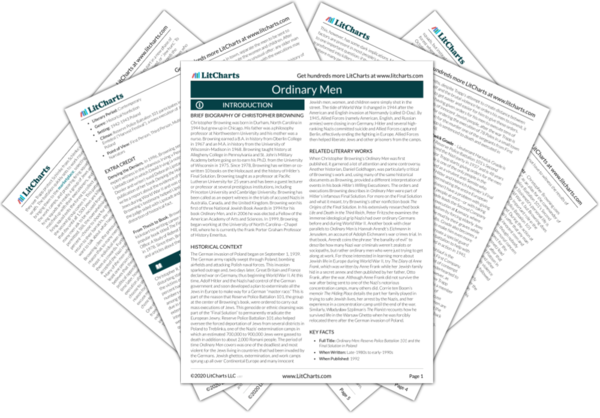The story of the man who turns his own daughter over to the policemen knowing that they’ll kill her is a memorable one and can be interpreted in a couple of different ways. The man may genuinely want to save his own skin and doesn’t care if it costs his daughter her life, but it could also be that he is afraid of what will happen to her later if he doesn’t allow the men to kill her quickly. Either way, his choice likely encourages the German belief that Jews are inhuman. What kind of father, after all, chooses his own life at the expense of his child’s? Because the
judenjagd becomes such a prevalent part of the battalion’s job, it also becomes another way for the men to bond. As has been seen in earlier actions, the men who shoot remain a tight-knit group while those who don’t are generally considered “cowards” and “weak.” There is a new kind of peer pressure at work during the hunts because if the people choose not to even go on them, they’ll not only be choosing not to serve with their comrades, but also choosing not to be with them on potentially dangerous missions (as seen in the skirmish that resulted in Hagen’s death).
